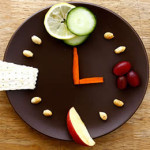Foods that Help Treat Colon Cancer
Colon is important to remove water from the waste material and forming stool. Since it is an essential part of the digestive system, experts believe that foods you eat have a role on affecting your risk of developing colon cancer. Appropriate diet is also crucial to prevent the cancer from recurring after the treatment.
The main treatments include surgery, radiation therapy, and chemotherapy. Surgery is used to remove the cancerous tumor. Radiation therapy and chemotherapy are needed to help shrink and kill the cancer cells – and prevent them from growing back, typically you take these treatments after surgery.
Some alternative treatments are available but no one that has been scientifically proved. In other words, there are currently no alternative treatments.
However, in fact many patients experience some distress after the diagnosis. This can lead to sadness, depression, loss of appetite, difficulty sleeping, anger, or other distress symptoms.
Therefore some patients may need to take complementary therapy to help cope with stress. These may include with meditation, art therapy, music therapy, or relaxation exercises.
How about the role of diet in treating the disease? When you already have a cancer in your bowel, there may be nothing you can do with your diet to treat the problem.
Diet may help, but it is not enough since colon cancer can be serious and therefore should be treated properly. So medical interventions are usually required!
But dietary factors should not be ignored, too – especially after the cancer treatment. It is also essential part of the treatment plan to help prevent the removed cancer from recurring!
After cancer treatment, your digestive system will take time to settle down. Even though you do have an appropriate diet, you may still need to go to the toiled more often than usual.
For instance, if you have taken colostomy, you may need a few months to restore the normal function of your bowel. Meanwhile, some foods may upset the way of it works!
Typically, foods high in fiber will worsen your loose stools. Some foods may also trigger wind. Therefore, you may need to avoid these till your bowel is ready.
 In general, the following are some foods you need to restrict in a few weeks /months after your colon cancer treatment:
In general, the following are some foods you need to restrict in a few weeks /months after your colon cancer treatment:
- A very high fiber food, such as veggies and fruits.
- Sprouts, onions, and cabbage since they can trigger more gas.
- Lentils, baked beans, or other pulses.
- Carbonated and alcoholic beverages.
- Fatty foods.
How your diet after surgery should go?
Typically, patients will not eat all for 1-2 days. But they should be able to eat and consume foods fairly normally by the time they go home.
As well we know that colon is a crucial part of the digestive system that has function to absorb water as the waste product (stool) passes through it. If it doesn’t work well, you tend to pass loose stool through a bowel movement.
If you have had a large area of bowel removed through surgery, you may experience diarrhea. Talk your doctor if this symptom persists, some medicines may be required to control it! And if you do have diarrhea, make sure to drink plenty of water to avoid dehydration!
After a few weeks, your bowel should begin to work properly. However, there may be particular foods that can upset it!
These foods can vary and there is no one-formula to determine what you should avoid in your diet. Write down potential foods you may need to avoid. As your digestive system settles down, you may be able to include these foods into your diet latter on.
Your diary should also include ‘when you eat’. Yap, the time of you eat food may also have an effect. Moreover, write down any problem you have and when you get it!
The following are other tips:
- Eat plenty of protein and calories to help boost your recovery and reduce the risk of infection.
- Avoid eating large meals! Instead, choose eating small (more frequent) meals throughout the day. And chew any food you eat slowly!
- At first, it is better to stick with diet low in fiber. As your bowel settles downs and is ready for fiber, increase your dietary fiber gradually!
- Furthermore, restrict any caffeinated beverages since caffeine can affect bowel and worsen diarrhea.
- Keep hydrated and drink adequate water!
- If you have extra wind in the bowel, peppermint water may help since it can relieve trapped wind!
Diet after chemotherapy or/and radiotherapy
Chemotherapy can help shrink and kill cancer cells, but it also carries some side effects, including the risk of diarrhea and making you feel sick. The same goes for radiotherapy.
The good news, the side effects usually go away after the treatment is over. Meanwhile, there may be particular foods (such as foods too high in fiber and fat) you need to restrict to help control the side effects of the treatment – talk to your dietitian /doctor /nurse for more advice!
Many times, cancer and its treatment can lead to decreased appetite, causing weight loss. But it’s important to always get plenty of nutrients, especially when your body is fighting against cancer. Even though you don’t have any appetite, try to eat!
Like many things in cancer, if you have had colon cancer, you can have it for the second time.
That’s why the treatment plan is also focused to prevent the cancer coming back. And your diet can play a key role!
The following are checklists of foods you need to eat (prioritize) and avoid (restrict) in your diet:



